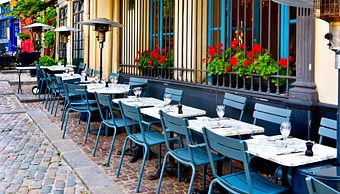the Restaurateur
How Can Your Restaurant Survive Slow Season?
September 28, 2017With fall almost here, it’s important to consider how restaurant business will change—is your business mainly a summer hot spot? How will you manage costs during the slow months?
Many restaurants experience a drop in business when summer comes to an end. How do these businesses cope? Even if your establishment is still busy in the fall, you likely have another period with significantly less business than other months. Here’s our advice.
Factors impacting restaurant business
A restaurant may start losing business for a couple reasons....
Holidays- Valentine’s Day is one of the busiest days in the restaurant business, along with Mother’s Day. Many restaurants will see a sharp increase in business around these holidays, and lulls before and after.
Seasonal changes- For some, extreme seasonal swings take a toll on business. A beachfront seafood eatery in the Northeast, for example, may have a high season of three to five months, then a sharp decline once vacationers and tourists leave. On the other hand, ski destinations may experience a stark drop-off once winter comes to a close.
Keep finances on track during the off season
Once you understand the “seasonality” of your restaurant, so to speak, there are ways you can plan for the probable drop in business:
- Stockpile savings- If possible, put money aside during peak seasons! This can carry you through when business is slow.
- Maintain fixed costs- Know and control your fixed costs—rent, utilities, payroll. That way you know exactly how much money you have to spend even if no one walks in the door.
- Reduce labor costs- You don’t want to have too many people working during slow periods.
- Adjust menu/inventory- Make sure your menu items are fitting with the season. Consider reducing the number of perishable products you buy because they’re often expensive and have a short shelf life. Avoid overbuying whenever possible during slower periods.
- New promotions and offerings- Test out new ways to attract guests—drink specials, $1 burger night, delivery service etc. Keep menu items fresh and offer items that apply to the season.
- Marketing- Focus your marketing efforts on your immediate neighborhood to start. Photograph new menu items and post them on social media.
- Don’t adjust hours- Though it may be tempting to close during the off season, or close your restaurant certain days of the week, this may deter customers. If they come to your restaurant on a Monday and it’s closed—they might be put off from returning to your business another time.
If you’re struggling to make ends meet during your off season, there are short term funding options that might interest you and be a good fit. Check out our blog, “How to Fund a New Restaurant” for more guidance on that.
Our Hospitality Services Group is always here to answer your questions, reach out to us today.



